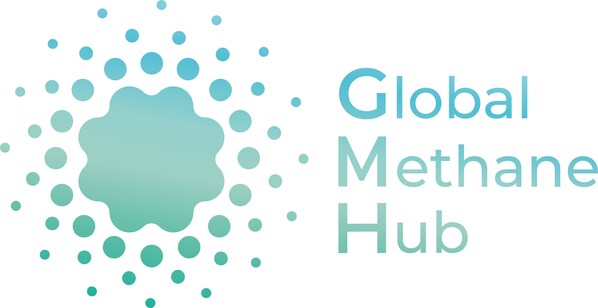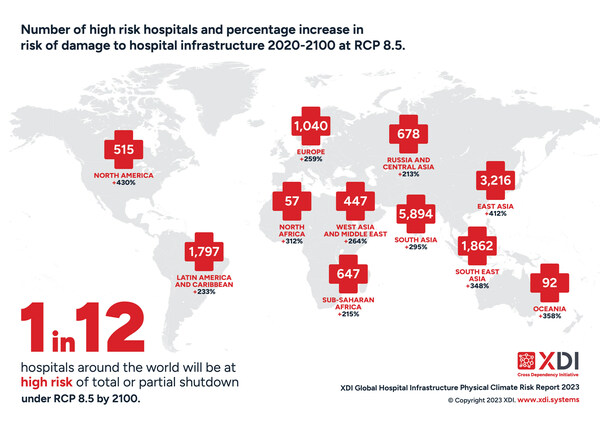 |
The Largest-Ever Globally Coordinated Funding Investment in Livestock Methane Mitigation Research Announced at the COP28 Business & Philanthropy Climate Forum
The public, private and philanthropic partnership includes Bezos Earth Fund, Quadrature Climate Fund, Gerstner Philanthropies, High Tide Foundation, Bill & Melinda Gates Foundation, The Zegar Family Foundation, Danone and more
DUBAI, UAE, Dec. 3, 2023 /PRNewswire/ — Today, at COP28, the Global Methane Hub (GMH) announced a more than $200 million funding initiative between public, private and philanthropic partners including the Bezos Earth Fund, Quadrature Climate Fund, Gerstner Philanthropies, High Tide Foundation, Bill & Melinda Gates Foundation, The Zegar Family Foundation, Danone, the Governments of Ireland, New Zealand and the United States, for research and development (R&D) technologies to meaningfully address and reduce methane emissions from livestock.
The Enteric Fermentation R&D Accelerator, or Accelerator, is the largest-ever, globally coordinated investment of breakthrough research tackling livestock methane emissions. The Global Methane Hub announced the intention to establish the Accelerator at COP27 as an AIM for Climate Innovation Sprint. The Accelerator will unite funders, guided by a science oversight committee, to invest in a globally coordinated research plan. This strategy aims to address gaps in current research and enhance existing efforts. The strategy includes work on exploring new and alternate livestock feed additives, tools to breed low-methane livestock, immunological studies for a methane vaccine, understanding the organisms in the rumen and their functions, and lowering the costs of measurement, essential to generate evidence for regulatory approval and validation of mitigation technologies.
About 40% of the world’s methane emissions come from agriculture, and 70% of that is due to enteric fermentation. This process happens in cows’ digestive systems when sugars are broken down into methane and released through belching. Unfortunately, current research on enteric fermentation is not extensive or coordinated enough to provide efficient and transformative solutions to significantly benefit farmers.
This is the latest milestone to mark the impact GMH is having on global methane reduction efforts since its founding in December 2021.
“The Accelerator is a prime example of the role philanthropy can play in driving substantive climate action and strategically aligning the key players working to solve the most pressing issue of our time,” said Hayden Montgomery, Agriculture Program Director at the Global Methane Hub. “With this effort to synchronize and consolidate public-good research on enteric methane, we aim to make multiple solutions to reduce enteric methane available quickly and provide proof of the efficacy of livestock mitigation technologies.”
“We know that cattle are responsible for most agricultural methane emissions. Promising technological and scientific solutions exist, but for too long, monetary and regulatory barriers have slowed progress and prevented critical research,” said Andy Jarvis, Director of Future of Food at the Bezos Earth Fund. “The Global Methane Hub’s Enteric Methane R&D Accelerator stands to change all of this, unlocking the resources needed to discover and develop low-cost solutions that will dramatically reduce methane emissions from livestock by 2030.”
“Through the Accelerator, we are poised to make a significant impact in driving innovation towards solutions to reduce enteric methane globally,” said Richard Lawrence, director and co-founder of High Tide Foundation. “I would like to thank Danone for stepping up as the first corporation committed to the Accelerator and I encourage others to do the same.”
“As a dairy company, curbing methane emissions is the fastest and most impactful way to slow down global warming,” said Olivier Verdelet, Vice-President Agriculture Cycle at Danone. “To do so, collaboration will be instrumental as we seek for new solutions, speed and sizable impacts. We are eager to collaborate with the Global Methane Hub and other partners to accelerate and test scalable innovations in the field. We believe this will help us build a sustainable, future-fit dairy category that is at the core of our mission to bring health through food to as many people as possible.”
Agricultural methane is projected to increase 40% by 2050. We would have to reduce emissions by 50% in order to meet the accords of the Paris Agreement to keep the global temperature rise to a maximum of 1.5 degrees Celsius. Reducing methane emissions from all sectors, including agriculture, is the fastest way to mitigate climate change.
Logo – https://mma.prnasia.com/media2/2291046/Global_Methane_Hub_Logo.jpg?p=medium600











